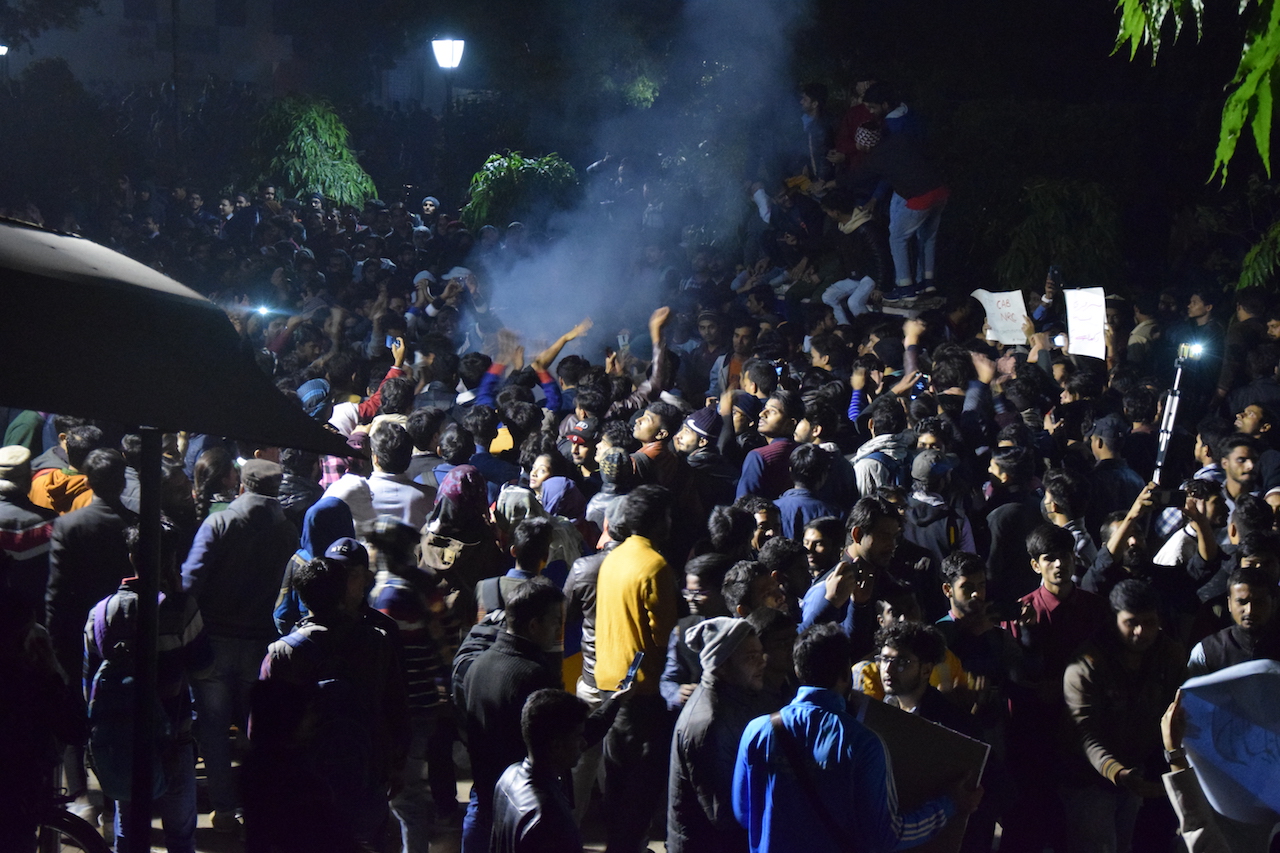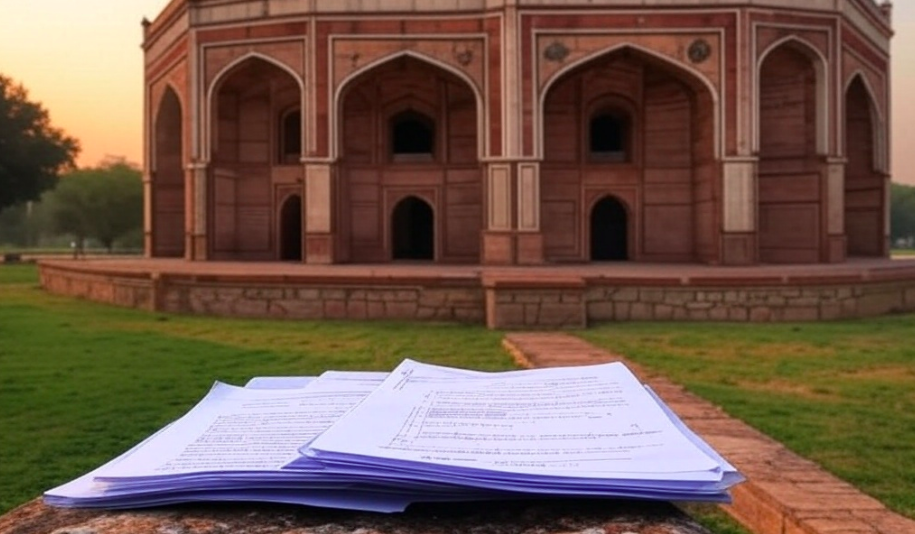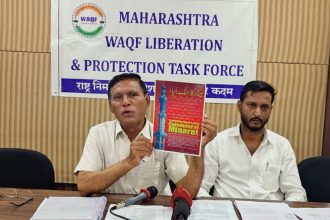Tauhid Nasir for BeyondHeadlines
Ever since the Indian Parliament passed the Citizenship Amendment Act (CAA) last December, which grants citizenship to non-Muslim refugees who came to India before December 31, 2014 from three neighbouring countries Afghanistan, Pakistan and Bangladesh, the nationwide protests against the act have swamped the whole country and refuse to die down even after nearly three months now. The outrage against the act is mainly because it is the first time in independent India’s history that a religious criterion has been adopted in country’s naturalization process and discriminates against Muslims. The protesters believe that the law, which left Muslims out of the ambit, is fundamentally discriminatory and unconstitutional.
Muslims fear that once the process of National Register of Citizens (NRC) starts under which every Indian is required to prove their citizenship failing which they would be declared illegal immigrants first then under the CAA everyone, except Muslims, will be granted citizenship. Muslims will be either deported, which seems very unlikely or sent to detention centres.
However, the government is saying that CAA doesn’t take away anyone’s citizenship rather it gives citizenship which is a half-truth. And the other half-truth is that the act does not give citizenship to Muslims. The community feels that the exercise of CAA-NRC combined is more about filtering out Muslims and disenfranchising them than granting citizenship to said communities.
The controversial act has created fear among the minorities and marginalized people already, now how they will cooperate with the process when it is implemented on the ground nationwide is something one can only envisage at the moment. But, what is almost certain is that the exercise will create unprecedented socio-economic chaos and poor and illiterate will suffer the most.
The Act is anti-poor & anti-illiterate
India is a developing country. With over 170 million poor, it is home to a quarter of global poverty in 2015. However, it has taken a major stride in improving its growth over the last few decades. Yet, it failed to lift over 21.2% of its population from extreme poverty who were living on less than $1.90 a day in 2011, the World Bank report said and only a handful of people benefited from this economic boom.
Not only that, over 313 million people are illiterate, 190 million people sleep hungry every night and millions of people get displaced and hundreds are killed every year due to floods and other natural disasters. In such a pathetic state of the affairs, it is absolutely sinister and inhumane to expect these people would have 5-6 decades old documents of their citizenship with them.
As the saying goes the drowning man clutches at straws, now these marginalized people would have no option but to run from pillar to post in search of their documents which may or may not save them from being declared illegal immigrants. What happened to 50 years old Jabeda Begam and many others in Assam is a case in point. Jabeda has spent over Rs 19 lakh for 15 documents to prove her citizenship, but none of the documents saved her and her family from being declared foreigners. Now, she is left with no resource to take up her battle to the apex court.

The final NRC list published in Assam last August excluded more than 19 lakh people. If these people also (will) follow through the process Jabeda Begam undertook in obtaining documents and end up with all resources exhausted, imagine what a tragedy would befall upon them.
India, which is already grappling with severe inequality of wealth, witnessed 73% (Rs 3570 billion) of the total wealth generated in 2017 went to the richest 1%, while the poorest half of the total population got only 1% surge in their wealth, the OXFAM India said. Clearly, if the CAA-NRC is carried out nationwide then it will not only force marginalized and poor to become poorer and rich the richer but also further widen the economic inequality gap in the country.
The Act likely to cost foreign remittance
As per 2011 census, Muslims constitute 14.2% of India. They are mainly into farming, weaving, footwear production, restaurants and sales among others. Though, a good number of them work overseas.
According to the United Nation’s International Migration Report, India was the largest country of origin of international migrants with almost 17 million people working overseas in 2017. Out of this, a good number of them working in the Gulf Cooperation Council (GCC) countries are Muslims. With such a huge number of workforce abroad, it is obvious that India tops the list of recipients of foreign remittance with $79 bn in 2018, which is 2.7% of India’s GDP, the World Bank said in its report. The report also said that of the total remittance to India, almost $40 bn transferred from the GCC countries alone.
Now with the passage of the CAA, this economic contribution to India’s GDP is under threat. Because, if the government does not consider Passport, Aadhar, PAN cards, bank documents and land revenue receipt valid documents for citizenship then it is most likely that India’s large Muslim minority – who go overseas to earn their livelihood and send remittance back home – would be affected.
The community fears that if former Chief Minister, Members of Legislative Assembly and retired decorated Army officers could not make into the final NRC list of Assam then how can poor and illiterate Muslims would do. The exclusion of these influential people have created a significant amount of apprehension in the community that they would be stripped off their citizenship and disenfranchised.
At a time when the country is struggling to overcome financial uncertainty unleashed after demonetization and several bank frauds, such a sectarian and divisive law would only aggravate the crisis. Thus, it’s incumbent upon all the institutions to be upright and go by the book to preserve the soul of India else its image at the world stage would take a beating with a sense of feeling that India’s political and constitutional morality is compromised.









